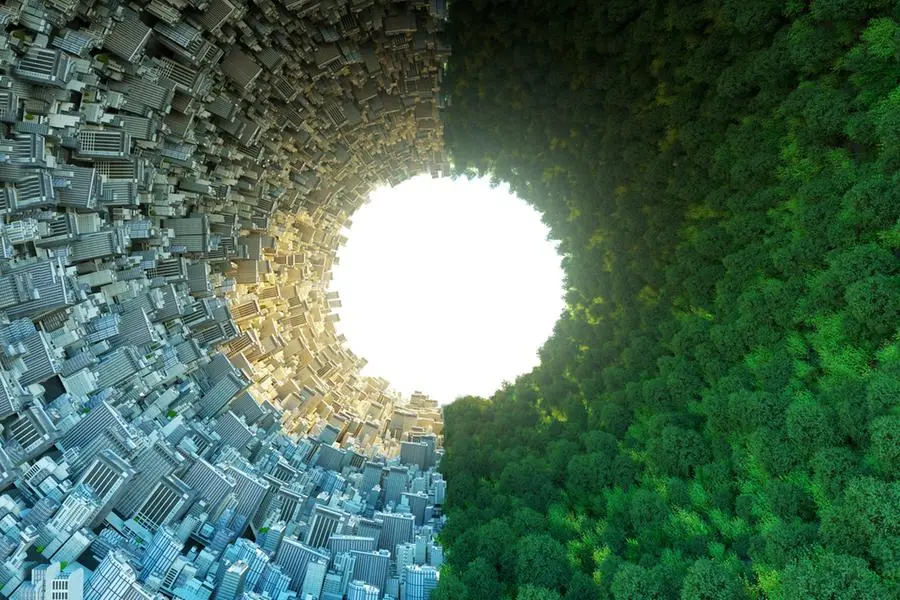PHOTO
Tourism is at a crossroads: it can either lead the charge in climate action or become a casualty of its environmental footprint. The industry is heavily reliant on natural beauty and cultural heritage, embracing sustainability is not just a trend – it's a necessity for survival. If meaningful efforts to reduce emissions and protect ecosystems are not made, what precious ecosystems will remain for travellers to flock to see in the future?
Setshego Ledwaba, Marketing and Communications Manager at Radisson Hotel & Convention Centre, Johannesburg, O.R. Tambo Airport
In southern Africa, research reveals that many businesses adopt green initiatives to comply with regulations, enhance their brand image, or attract a growing segment of eco-conscious travellers. However, as consumers become more discerning, they are raising the bar, demanding genuine sustainability rather than superficial fixes.
Tourism currently accounts for 5% of global greenhouse gas emissions, and experts predict that air travel and accommodation-related emissions could triple by 2035. This should serve as a wake-up call for hoteliers. The Cambridge Institute for Sustainability Leadership underscores that the industry must urgently reduce its carbon footprint to remain viable in the long term.
While the enormity of the crisis can make it feel overwhelming, the gravity of what is at stake should focus our attention and encourage us to work together – one hotel, one guest and one action at a time.
Eco-friendly principles: From staff to guests
Combating global warming changes that dwindle fresh water sources, lead to less biodiversity (thus reducing ecotourism) or threaten the viability of beach and ski resorts, requires collective action with a shared understanding of sustainability goals – from groundskeepers to guests.
For hotel workers, this means embedding green behaviours through training and incentive programmes that make sustainability second nature. For instance, our grounds teams are equipped with knowledge of native plant species, ensuring eco-friendly landscaping that supports biodiversity and conserves water. This keeps gardens pristine while aligning with our environmental goals.
As for guests, there is no way to control how many showers they take or how much room service they order. Eighty percent of the food served on our property is free from chemical fertilisers and pesticides and our seafood is sustainably sourced in line with the Marine Conservation Society’s Good Fish Guide. These measures ensure that even the most indulgent guest meals don’t harm the environment
Guest rooms are only stocked with eco-friendly toiletries and cleaning products that minimise environmental impact, even post-disposal.
Taking sustainability beyond operations
Sustainability is about more than environmental efforts. The World Tourism Authority's Hotel Sustainability Toolkit guides hotels to make positive contributions to the communities they are located in. When hotels collaborate with vetted charities and social enterprises, they become investors in their surroundings, not extractors.
Our responsible business team, for example, plays a key role in this. They ensure we invest in community projects like the regular donations and time commitments made to the SOS and the Nyeleti Children's Homes. They oversee our participation in shared value programmes like Soap for Hope and Coffee Briques, which allow us to repurpose waste for community needs. Each year time is dedicated to Nelson Mandela Day initiatives that further strengthen community ties.
Hotels can also help guests preserve a destination’s natural and cultural heritage, by working with local guides who understand the area’s history and informing guests of tourist behaviours that degrade the environment.
Reducing waste and managing resources
Eliminating harmful plastics or paper is a straightforward way for a hotel to lower its environmental footprint. Switching to digital check-in and ridding our property of single-use plastics and polystyrene food packaging are just some changes we have made so far.
Johannesburg is a water-scarce city. To make the most of this precious but limited natural resource, Radisson only uses water-efficient taps and rainwater is strictly used to sustain our indigenous, drought-resistant landscaping.
Energy efficiency is another cornerstone of our sustainability efforts. Through the use of automatic lights in places like lifts and pools that use energy-saving technologies, our energy consumption has been reduced. These systems, alongside energy-efficient appliances and optimised thermostats, have helped us reduce energy consumption by over 5% compared to last year.
Incremental changes add up
By embracing energy efficiency, water conservation, and community engagement, hotels can become true champions of sustainability. These actions not only reduce costs and enhance public perception but also secure the future of both the industry and the environments it depends on.
The time for half measures is over. To protect the future of South Africa’s tourism industry, hotels must act decisively and commit to sustainable practices that ensure long-term success for both business and the planet.
All rights reserved. © 2022. Bizcommunity.com Provided by SyndiGate Media Inc. (Syndigate.info).




















